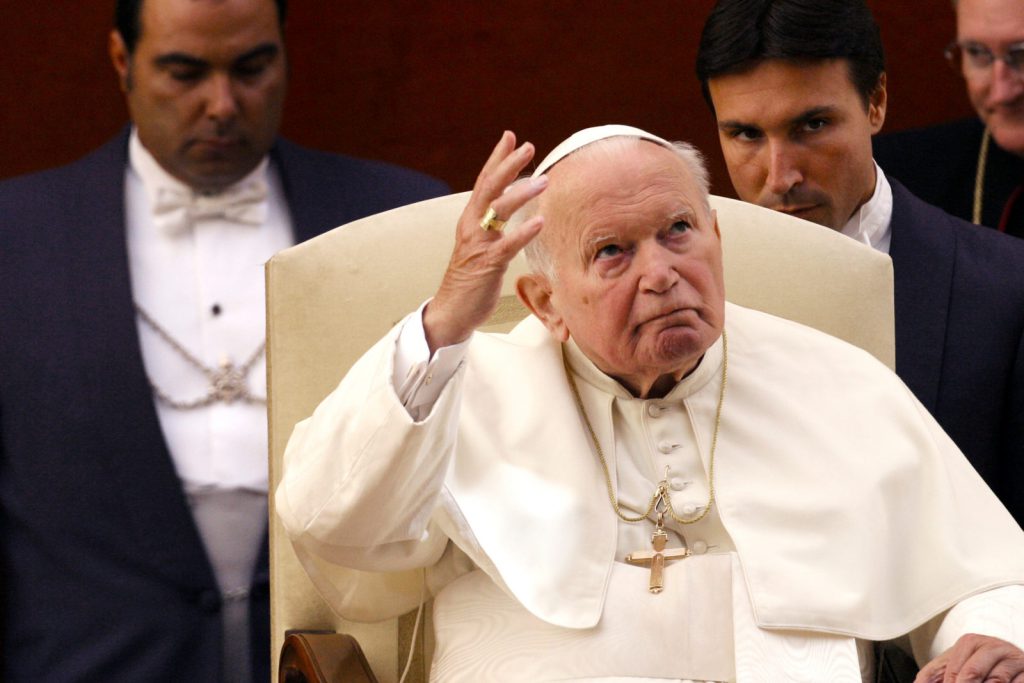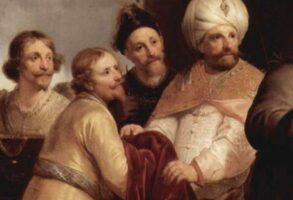
Published September 27, 2016
In a small book published in 2005, The Cube and the Cathedral, I raised a question that is even more urgent today than when the book was first published: Can a culture without agreed moral reference points to guide its public life sustain democratic self-governance over time?
The answer that history has given since 2005 is hard to avoid: No, it cannot. The difference now is that this hard truth has become evident throughout the democratic West. The democracy project – the freedom project, if you will – is in serious trouble around the world, and the basic reasons for that are cultural.
The claims of some political scientists and sociologists notwithstanding, democracy is not a machine that can run by itself. No matter how well-designed the machinery, democracy will become brittle, and may ultimately crack and fail, if it is not sustained by a citizenry steeped in certain virtues: men and women committed to the dignity of the human person as the first principle of just governance and dedicated to the pursuit of the common good.
This hard truth is denied by the post-modern high culture of the West; indeed, the truth that there are truths about the human person and human community essential to democracy is regarded by many post-modern thinkers as an undemocratic sentiment, behind which lurks a creeping authoritarianism. Yet the opposite is true across the West: it is the radical moral relativists for whom there is no “truth,” but only expressions of personal preference and will, who are busily enforcing their judgments on society in the name of “tolerance”. You may find them wherever the western democratic project is understood primarily as a machine for the satisfaction of individual willfulness – wherever the imperial autonomous Self is understood to be the idea of the human person that best suits the democratic project.
Those who would challenge the idea that freedom is merely willfulness and that democracy is just a machine for satisfying individual desires can find powerful ideas for doing so in the thought of Karol Wojtyła, Pope St John Paul II.
In Centesimus Annus (2001), John Paul II proposed that the free society of the future would be composed of three interrelated and interlocking parts – a democratic political community, a free economy, and a vibrant public moral culture – and that the third was the key to everything else. Why? Because a vital, truth-centered public moral culture would temper and direct the tremendous human energies set loose by political and economic freedom so that those energies would serve genuine human flourishing.
In Veritatis Splendor (1993), John Paul taught that a culture’s recognition of the moral truths to which all are accountable – truths we can know by reason – was the firmest foundation on which to assert the democratic equality of all in a world of manifest inequalities: for everyone is equal before the demands of the moral law.
In Ecclesia in Europa (2003), the Polish philosopher-pope cautioned against a “selfishness that closes individuals and groups in upon themselves,” a self-induced claustrophobia that underwrites the Culture of Me and thus makes it impossible to act for the common good.
Those proposals and that warning are even more salient today than when they were first issued.
The answer to the West’s 21st-century drift into cultural incoherence, political sclerosis, and fecklessness in the face of new aggressors is not going to be found in a mythologised past or xenophobic forms of nationalism. Nor is it going to be found along the path of a new authoritarianism. The answer can only be found in rebuilding the political culture of the West on the basis of the moral truths that, over time, created the unique form of public life known as western democracy. Those truths come to us from both revelation and reason, from biblical religion and from the ancient Greek conviction that human intelligence can get at the truth of things.
Today, the people whose ultimate convictions are rooted in biblical faith understand that they can learn many important things from those who have not received the gift of faith. Open-minded men and women of reason, living without faith, also understand that they can learn from people of faith. People of faith and people of reason must band together to challenge the post-modern assault on the human capacity to know anything with certainty, for that assault is at the root of today’s discontents throughout the democratic West.
Truth is not the enemy of either democracy or freedom; truth is the essential pre-condition to democracy. Abiding in the truth is freedom’s proper goal. Truth is liberation; truth is not oppression: that is the “public” message of what the Catholic Church today calls the “New Evangelisation.”
And that message is what Catholics converted to the fullness of Catholic faith – living the truths of faith nobly and with compassion, determined to be missionary disciples in all walks of life, and committed to the method of persuasion – bring to the great task of securing the western democratic project in the 21st century.
George Weigel is Distinguished Senior Fellow of Washington’s Ethics and Public Policy Center.











